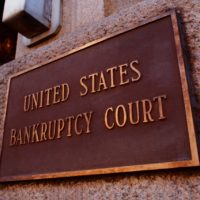Thinking of Filing for Bankruptcy? Consider Your Choices Before Deciding

You cringe every time the phone rings, thinking it’s just another bill collector. You hate going to the mail box everyday because you know it’ll be stuffed full of collection notices. If this is your life, maybe it’s time to start thinking about filing for bankruptcy. There’s nothing to be ashamed of, and filing for bankruptcy can and does bring you a sense of financial freedom you never thought possible.
Bankruptcy was originally outlined in the United States Constitution with intentions of providing a fresh start to those in your situation. The one who creates the stigma attached to bankruptcy are the creditors who are trying to induce debtors into paying their bills. For the sake of this article, we’ll review the two different types of individual bankruptcy and what they may mean to you.
Matter of Public Record
Bankruptcy filings may or may not be publicized in your local paper, but either way they are a matter of public record. And bankruptcy is a big decision, one to not be taken lightly, so it’s important to understand bankruptcy and what it entails before you make your decision.
Which Chapter is Best for You?
Each chapter of bankruptcy has different requirements for you to meet in order to be eligible to file under that particular chapter. It’s important that you understand what options you have to help you determine which best fits your needs.
Chapter 7
If your debt is mostly unsecured debt, such as medical bills, a deficient balance due to an auto repossession, and credit cards, Chapter 7 may be the choice for you. It’s sometimes referred to as straight bankruptcy, as it eliminates eligible debt. This is a good option if you have a significant amount of debt and minimal assets.
The Chapter 7 Process
Any property you have that’s considered non-exempt under the bankruptcy law is converted into cash and the bankruptcy trustee distributes the cash to your creditors. In just about four months, you should receive a discharge of your eligible debts.
Chapter 13
Chapter 13 is often referred to as “the wage earners plan“. This may be the right type for you if you have non-exempt property that you would like to retain, and a steady income that allows you to meet your monthly expenses all while paying off your debt. If you are facing foreclosure, filing for Chapter 13 stops the foreclosure action and it also allows you to refinance your automobile. This is a great choice if you want to save your car or home.
The Chapter 13 Process
Under Chapter 13, you work with the bankruptcy court to create a three-to-five-year repayment plan based on your income. Your debts are consolidated into one monthly payment, and you make the payment to the bankruptcy trustee who then distributes the payments to your creditors.
If you’re thinking of filing for bankruptcy, contact an experienced bankruptcy attorney who can look at your particular situation and help you decide which bankruptcy is right for you.
For a consultation about your bankruptcy options, call Ghandi Deeter Blackham Law Offices at (702) 825-7748.

